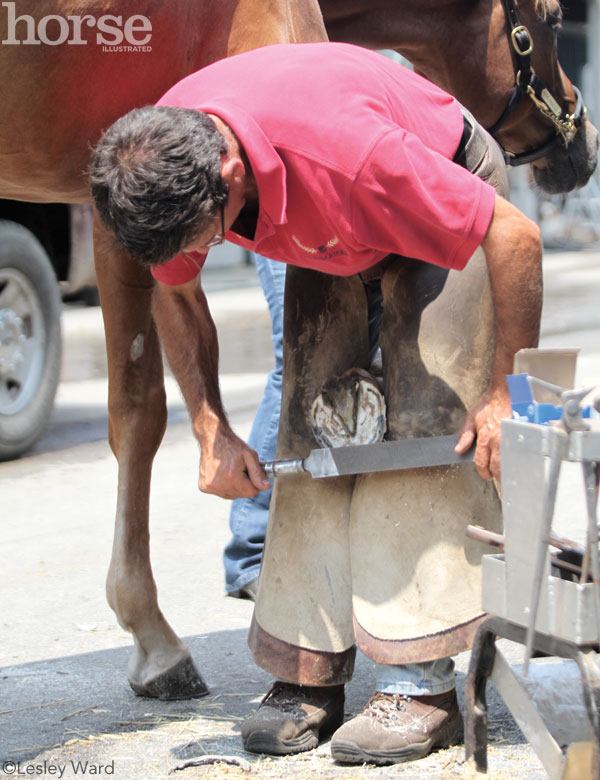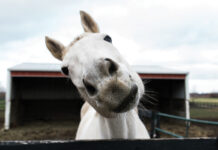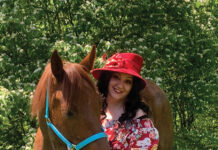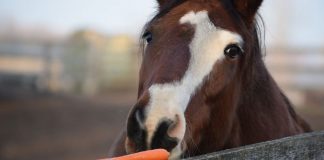
Q: I pull my horse’s shoes when he’s not in hard work and in the winter. However, his feet seem sore even after a few weeks of going barefoot. He mostly lives on pasture turnout unless the weather is really bad, and is in good health and weight. The ground hasn’t frozen for the winter yet, so it’s only firm in certain places, although when we have to cross gravel he is even more sensitive. Is this normal and OK? Or should I keep shoes on him year-round even when he’s not being ridden?
It’s a good idea to remove your horse’s shoes in the winter months, especially during seasons when he is only ridden infrequently. This gives the hooves a chance to expand, and it also removes the extra shoe weight he would otherwise carry around on the bottom of each foot. Furthermore, a barefoot horse has better traction in snowy and icy conditions, especially compared to a horse wearing steel shoes. Bare hooves are also less likely to accumulate ice balls that can make for treacherous walking in the paddock or pasture.
If your horse is having trouble adjusting to his now bare feet, one sensible tactic to help ease him through the toughening up period is to use hoof boots for part of the day to give him a bit of relief. There are many commercial varieties available, although you may have to do a period of trial and error to find the one that best suits you, your horse and your environment. Without question, however, you might consider using hoof boots when riding your barefoot horse, especially on the front hooves. This prevents unnecessary bruising while also making your horse more comfortable and happier when he is ridden.
If your horse still isn’t finding relief as his hooves grow out and his soles toughen, it would be smart to ask your veterinarian for a soundness evaluation and possibly do some foot radiographs to determine if he has enough sole to remain barefoot. Some horses can never go barefoot due to innately thin soles, while others have robust feet that toughen up quickly.
NANCY S. LOVING, DVM, is a performance horse veterinarian based in Boulder, Colo., and is the author of All Horse Systems Go.
This article originally appeared in the March 2015 issue of Horse Illustrated magazine. Click here to subscribe!







I let the 2 horses I don’t ride go bare foot year round and the one I do ride barefoot December till late April he is tender footed for awhile but eventually gets over it this helps me and him in the winter when the snow and ice come
My horses are all barefooted. But this makes sense, because when we were kids, we all went without shoes. As we start wearing shoes, our feet became tender. Now, when I walk on gravel without shoes…its ouch, ouch!!
great info